35 Ways To Say I Love You In Vietnamese
Asking how to say “I love you” in Vietnamese is kind of like asking “What foods should I eat right now?”. There’s no simple answer.
There are many factors that influence what food you should eat right now. How hungry are you? What time of day is it? What body type do you have?
There’s no simple way to say “I love you” in Vietnamese. Instead, it opens up a complexity of situations and options.
Why? Because there are so many pronouns used in Vietnamese that there’s no simple way to say “I” and there’s no simple way to say “you”. Both depend on context, age, and your relationship to the person you are speaking to.
This means that saying “I love you” to your father uses completely different pronouns than “I love you” to your husband or your daughter.
But this makes Vietnamese even richer! And don’t worry, I’m here to help you.
Table of contents
- How Do You Say “I Love You” In Vietnamese?
- How Do You Say “Love” In Vietnamese?
- Finding The Pronoun So You Can Say “I Love You” In Vietnamese Correctly
- “I Love You” In Specific Situations
- Dating & Marriage Vocabulary In Vietnamese
- Must Know Gestures in Vietnam
- “I like you” in Vietnamese
- Some Notes On Love & Vietnamese Culture
- You’ve Learned It, Now Go Speak It
How Do You Say “I Love You” In Vietnamese?
There isn’t only one way to say “I love you” in Vietnamese. The phrase you can use depends on who you’re talking to.
If you’ve been learning Vietnamese, you might know that pronouns are rather complex and challenging to grasp, even for native Vietnamese speakers. This post, however, is going to make your life (& hopefully love life) much easier!
If you’re reading this, then chances are good that there’s someone in your life who you love that speaks Vietnamese. Whether it’s your girlfriend, boyfriend, or step-dad, the more you learn about the Vietnamese language and culture, the more that person will appreciate it, and the more they’ll actually see that you do love them!
How Do You Say “Love” In Vietnamese?
In Vietnamese, yêu and thương are both translated to “love” in English, but they have slightly different connotations.
Yêu is a more intense and passionate form of love. It is often used to describe romantic love, and it implies a strong emotional connection.
Thương is a more gentle and compassionate form of love. It is often used to describe the love between family members, friends, and even pets. It implies a deep sense of caring and a willingness to sacrifice for the person or thing that one loves.
This word is more frequently used in social contexts or casual settings (though it’s still rarely used relative to the west. More on that below) like when you would say “I love you” in a casual setting after saying goodbye: “Bye! Love ya!”
In short, yêu is more about the feeling of being in love, while thương is more about the action of loving. You can also combine the words, creating a more powerful usage of the word love: yêu thương.
Now that we know the words for love, let’s dive into the pronouns so you don’t make a huge mistake!
Finding The Pronoun So You Can Say “I Love You” In Vietnamese Correctly
Here are the most common pronouns you will come across.
- Tôi -: “I, Me” (formal)
- Bạn -: “Friend”
- Mình -: “Me” (informal)
- Bố/Ba/Cha – “Father”
- Má/Mẹ – “Mother”
- Cháu/Con – “Son/Daughter”, “Grandson/GranddaughterGrandaughter”
- Anh – “Older brother”
- Chị – “Older sister”
- Em – “Younger brother/sister”
- Ông – “Grandfather”
- Bà – “Grandmother”
- Bác/Chú – “Uncle”
- Cô/Dì – “Aunt”
Whether you want to learn how to say “I love you” in Vietnamese to a guy or “I love you” to a girl, it’s crucial that you get the pronouns right.
There is a learning curve, and it can definitely be confusing at the beginning, but don’t worry. I’ve made many mistakes using the wrong pronouns, and Vietnamese people are very forgiving.
The bright side is that once you figure it out, Vietnamese people will appreciate your understanding of the language and culture and it’ll be obvious that you aren’t a raw beginner.
For example, I’ve lived in Vietnam for over 5 years now, and when I greet a stranger on the street or at a restaurant in Vietnamese, they can usually tell that my Vietnamese is at a high level because I use the correct pronouns (most of the time… I still make mistakes! 😛)
Also, Vietnamese people are VERY forgiving when it comes to a foreigner learning their language, especially with pronouns. That being said,
One of the cool things about Vietnam is that everyone addresses each other as family members. For example, I use the same word (chị) when addressing my landlord as my sister-in-law (who is a few years older than me).
I call my landlord’s mother, Grandma Nhi, (Bà Nhi) the same way I would address my own blood grandmother. So, when you speak Vietnamese, you address everyone as brother, sister, child, uncle, aunt, grandmother, grandfather, etc. It’s like one big family!
“I Love You” In Specific Situations
For most of the examples below, you can use either thương or yêu.
- “I love you” in Vietnamese to a girl if you are a slightly older male: (note my wife is 2 months older than me but I still call her em): Anh yêu em
- “I love you” in Vietnamese to a guy that’s slightly older: Em yêu anh
- “I love you” in Vietnamese to an entire family: Mình yêu cả gia đình (literally, “I love all of the family”)
- “I love you, mom” in Vietnamese: Con yêu mẹ or con yêu má (southern)
- “I love you, dad” in Vietnamese: Con yêu bố (northern) or con yêu ba (southern)
- “I love you” to parents in Vietnamese: Con thương bố mẹ (northern) or con thương ba má (southern)
- “I love you” to a close friend: Tao thương mày Note: Be careful with this one. Only use this with VERY CLOSE friends, otherwise, it is an insult!
- “I love you” to your older sister or to a woman slightly older than you: Em thương chị
- “I love you” to your Grandma (or a very old woman): Con thương bà (southern) or Cháu thương bà (northern)
- “I love you” to your Grandfather (or a very old man): Con thương ông (southern) or Cháu thương ông (northern)
Pro tip: There are three accents in Vietnam : Northern, Central, and Southern. Each region uses its own vocabulary and pronunciation. If you’re just getting started, I would pick one accent so you don’t get too confused. I suggest learning the same accent that the person you want to speak with most knows best.
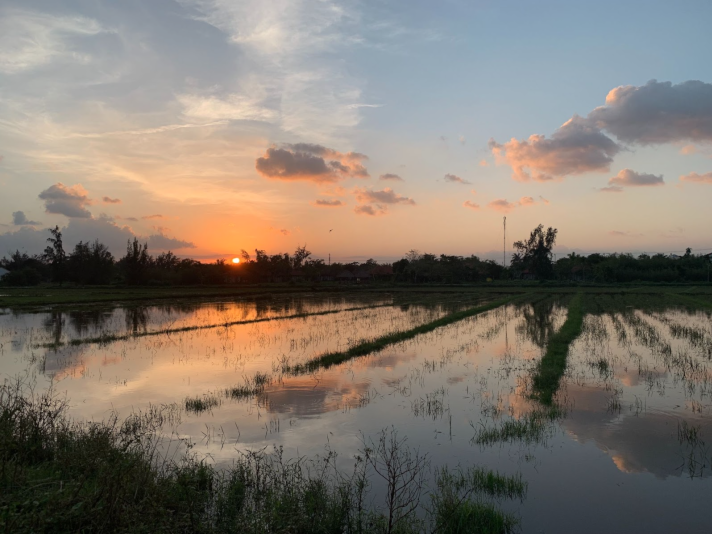
Dating & Marriage Vocabulary In Vietnamese
- Vợ – “Wife”
- Chồng – “Husband”
- Bạn Gái – “Girlfriend”
- Bạn trai – “Boyfriend”
- Người yêu– “Lover”
- Người thương – “Lover”
- Tình yêu ơi – ”Hey love/dear”
Must Know Gestures in Vietnam
Knowing how to say “I love you” is a nice starting spot, but if you want to win the heart over a Vietnamese woman like I did, the following lines may help.
- Anh yêu em nhiều lắm/ Anh yêu em rất rất nhiều: “I love you a lot, I love you so much”
- Anh thật sự yêu em: “I love you truly”
- Em đẹp lắm: “You are very beautiful”
- Em đẹp muốn chết luôn: “You are so beautiful I want to die” (see note below)
- Anh yêu ơi: “Hey, my love” (male speaker)
- Em yêu ơi: “Hey, my love” (female speaker)
- Vợ oi: “Hey, wife”
- Chồng ơi: “Hey, husband”
- Anh yêu em say đắm rồi: “I (male speaker) fell in love”
- Anh say em mất rồi: “I’m love drunk (on you)”
- Anh nhớ em/em nhớ anh: “I miss you”
If used correctly, this one can be a nice “pickup line” or cheesy thing to say in a flirty context.
I made a YouTube video about it back in 2015, and someone commented the following:
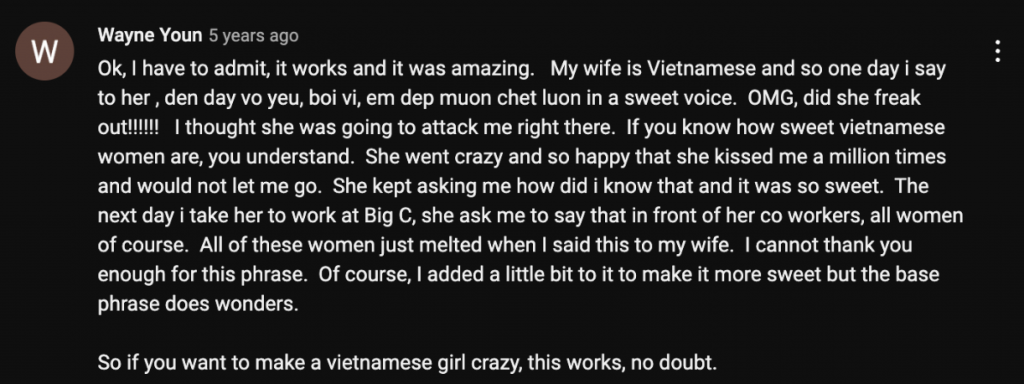
“I like you” in Vietnamese
For those of you not ready for the big “L” word, you can use other words that still express your appreciation for the other person. If you are just friends and don’t have any romantic feelings toward each other, then it’s less common to use the word yêu. Instead, you can use the word quý, mến, or thích instead. Here are some examples:
- Anh thích Em: “I (older male) like you (younger male or female)”
- Tao quý mày “I like you” (Used for close friends only!)
- Tôi mến bạn: “I (formal) like you” (bạn means friend)
- Tớ thích cậu: “I like you” (A formal way to talk to someone your age, much more common in the North)
The most common Vietnamese word for “like” is thích. Here are some common phrases that are useful to know.
- Trời ơi, thích quá! “Oh my god, I like [it] so much!”
- Ban có thích không? “Do you (friend, same age, casual) like [it]?”
- Anh không thích chơi nữa “I (slightly older, male speaker) don’t like to play anymore”
- Em có thích món này không? “Do you (slightly younger male or female) like this dish?”
- Mình thích uống cà phê: “I like to drink coffee”
Some Notes On Love & Vietnamese Culture
It’s worth noting that like many other Asian cultures, the phrase “I love you” is very rarely used outside of a romantic context. Honestly, this is something I’ve needed to get used to over time. I’ve needed to remember that just because people don’t say “I love you” doesn’t mean that the love isn’t there.
As an American, I grew up saying “I love you” to my family members multiple times a day. I also tell most of my close friends that I love them without hesitation.
In Vietnam, that type of expression of affection is rare. I was shocked to see that when I visited my now wife’s in-laws, nobody hugged or said “I love you.”
Personally, I see myself in a position of leadership here. Coming from the West, I’m not afraid to tell people I love them. So, I often find myself being the first one to express my love to my friends here in Vietnam.
Is it scary and a bit vulnerable? Sure. But if I wait for them to say it first, I may be waiting for the rest of my life. I’m totally okay if I tell someone that I love them and they don’t say it back.
“The whole world can love you but that love will not make you happy. What will make you happy is the love coming out of you.” – Don Miguel Ruiz
If someone doesn’t want to receive your love, that’s on them. But love is yours to give, otherwise, you wouldn’t be able to give it at all! Plus, we all can probably agree that there can never be too much love in the world.
You’ve Learned It, Now Go Speak It
After reading this article you now know how to say “I love you” depending on the context and situation. Lastly, my invitation to you is that as you learn Vietnamese not just to KNOW how to say I love you. Actually, say it! Tell your wife that you love her! Tell your boyfriend you love him! Tell your son you love him!
My wife and I have gotten in the habit of saying con yêu bố mẹ when we speak to her parents. Even though it’s not “normal”, we do it anyway, because we want them to know that we love them! Believe it or not, over time, they’ve started to say it back!
Knowing how to say “I love you” in Vietnamese is just the first step. The next step is to go out and say it! So, say “I love you” as much as you can (as long as you truly mean it)! Together, we can improve our Vietnamese and bring more love into the world at the same time.
Now I know that saying I love you can be a bold and vulnerable act, so I’ll do my best by leading by example here…
Cảm ơn bạn đã đọc. Mình yêu bạn nhiều lắm! (“Thank you for reading. I love you so much!”)

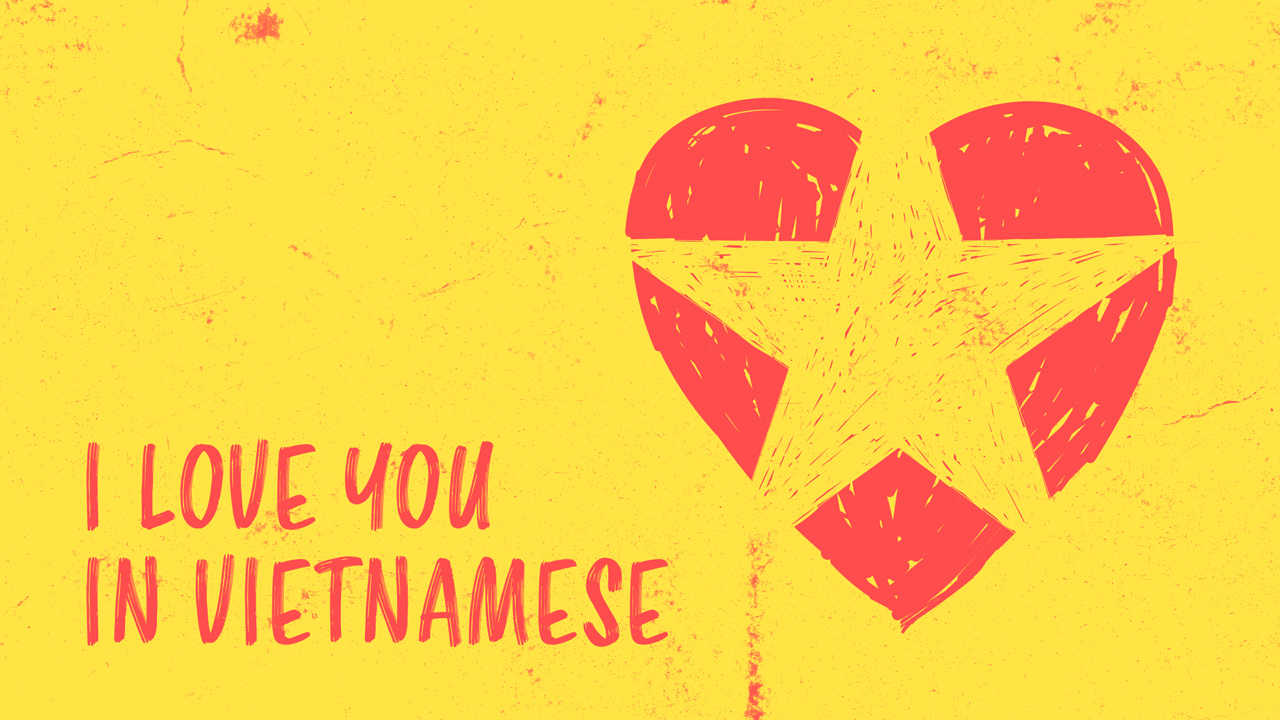
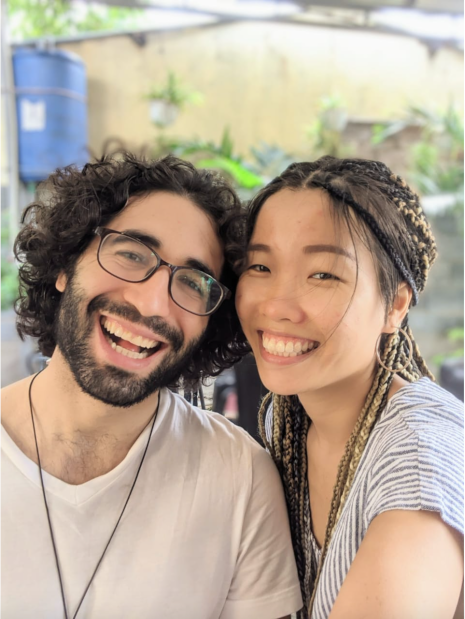
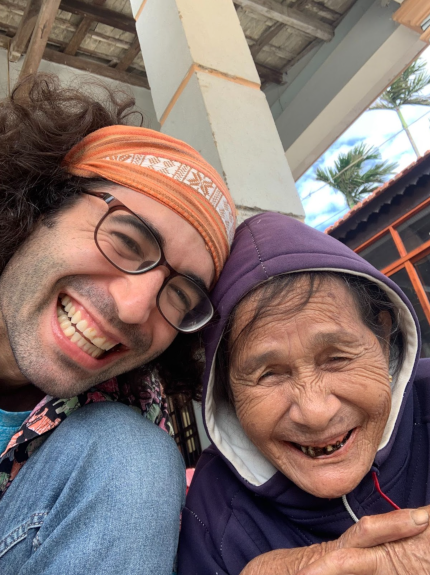
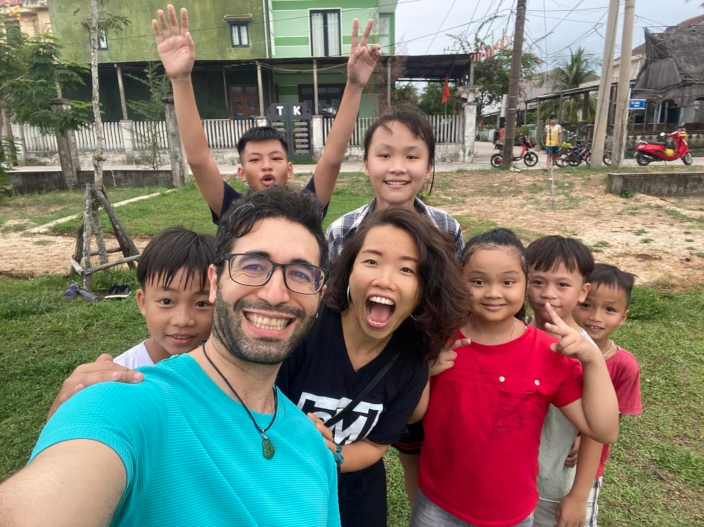


Social